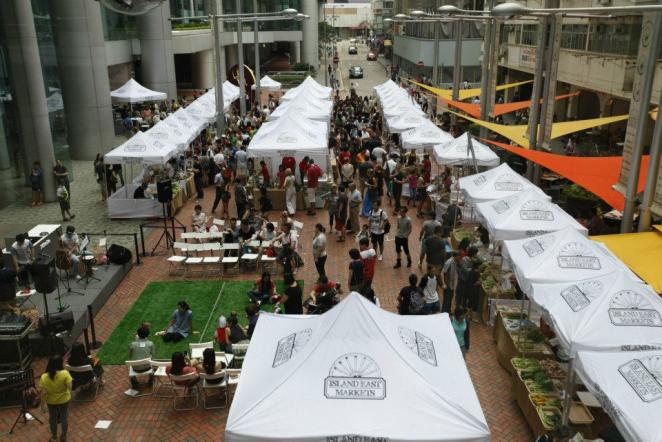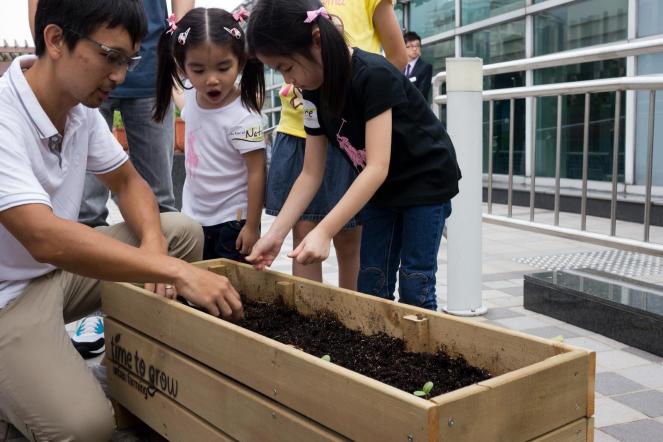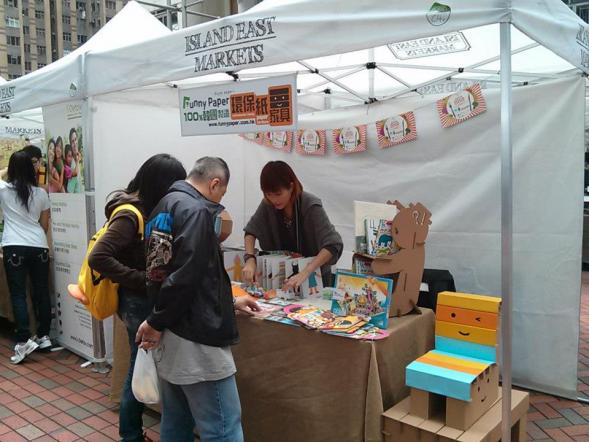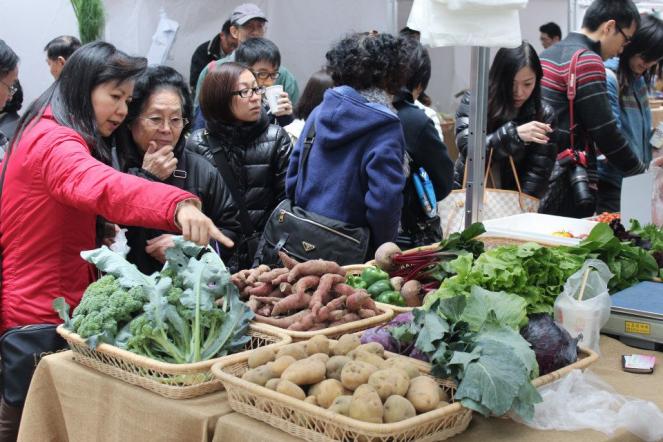Hong Kong food writer, blogger, and organic market founder Janice Leung Hayes didn't think there was anything left about her birthplace's food culture that could surprise her. Born in Hong Kong and raised in Australia, Janice started her popular blog e_ting in 2003 while living in Melbourne. Since moving to Hong Kong in 2006, she has been sharing her gastro-adventures among the city's trendy eateries, hidden kitchens, and street food stalls for nearly a decade. But after her interest in the local and organic food movements was piqued during an extended period of travel abroad, she was eager to find out more about where local and organic food fit into Hong Kong's dynamic food scene. What she discovered completely floored her.
"When I learned that Hong Kong imports up to 99% of our [fresh] food, I was shocked," she recalled over a double shot latte, as we chatted in a chic coffee shop tucked on a side street in the gritty Wan Chai district. She added that this revelation that nearly all of the city's supply came from mainland China was particularly worrisome given the numerous food scandals that have plagued the country. Janice was further dismayed to find out that only 1,814 acres – a miniscule fraction of Hong Kong's total area – is actively being farmed. Finally, despite more than 460 organic farms within the city's environs, the few dedicated organic farmers' markets in the region are often located on other islands or outlying districts, discouraging patrons who live in the concentrated urban neighborhoods on Hong Kong Island and Kowloon and would have to make a long trek to the market.
 Opening Day of Island East Markets
Opening Day of Island East Markets
Turning concern into action, Janice and her business partner Vincent Poon created the Hong Kong Markets Organization in early 2012, as a social enterprise dedicated to promoting local organic food production and sustainable lifestyle practices. By the end of last year, they had launched the Sunday-only Island East Markets, located in the mostly residential Quarry Bay area of the city's Eastern district, in partnership with the Hong Kong Organic Farmers Association and the Federation of Vegetable Marketing Co-Operative Societies to connect local farmers and conscientious consumers.
Janice is clearly motivated by the desire to galvanize local producers in hopes that Hong Kong can be weaned from its overdependence on imported food. She conceded that the city of 7 million residents will never be self-sustainable, citing a 2012 agricultural forum that reported less than 6% of land is earmarked for growing food. By encouraging organic farmers, however, more options for chemical-free food can be made available. "About 95% of our vendors are certified organic,” Janice explained. “We don't want to advocate organic as the only right thing to do. It's always a choice, but there was previously none."
 Future Farmers at Island East Markets
Future Farmers at Island East Markets
At the same time, she also hopes a lingering perception of farming as a career lacking prestige will finally be dispelled. "Mindsets are beginning to change about farming, from being invisible work to something important and admirable," she observed, mentioning friends who've traded urban professions for rural life. "It is back-breaking work for those who do it and my role is to promote and support them."
Envisioning more than just an organic vegetable market, Janice also sought to integrate different kinds of local and sustainable products into the marketplace, and to create a destination where visitors could spend a whole day, like the markets she enjoyed while growing up in Melbourne, Australia. At Island East Markets, shoppers can pick up artisanal food and handmade products from local artists and craftspeople that are thoughtfully chosen by the market's organizers. "We give priority to those who've never participated in a market or a fair before, and we try not to have the same items every weekend, so that visitors always see something new," Janice explained.
 Handicrafts at Island East Markets
Handicrafts at Island East Markets
Even more than providing consumers with healthy produce and local products, Janice wants to promote an overall message of sustainability. "We have a huge waste problem in HK. We want to encourage people to look at waste in different ways," she continued. "Instead of new leather goods, for instance, we try to find products made of scrap or recycled leather. [Waste] can be turned into something else and our vendors show creative ways of tackling it."
Island East Markets also offers workshops and cooking demos to give visitors a full experience, from learning where their purchases came from to how they are prepared or used. In this age of convenience, when pre-sliced onions, bagged salads, and peeled oranges are ubiquitous on grocery shelves, it's not unusual to find consumers who aren't quite sure what to do with their market haul.
Janice shared one such encounter: "I saw a little girl go up to a farmer, pointing to a beetroot, and as he explained that it came from the ground, her mother approached. She had never seen a beetroot before either, because she only found them already canned." She smiled in satisfaction as she added, "That, for me, was a winning moment and why I started the market."
 Surveying produce at Island East Markets
Surveying produce at Island East Markets
Island East Markets launched its sophomore year in mid-September and will run through the end of January 2014. Janice is pleased by its first year achievements, including a slew of positive press and growing popularity among locals. She noted that mostly expats attended the market in its early days, perhaps drawn by reminders of farmers' markets at home. Hong Kong residents more familiar with local street markets were a bit slower to embrace the Western-inspired format, but made up more than two-thirds of attendees by the time Island East closed for the summer season.
Janice is also encouraged by a growing number of tourists and would love to see the market become a destination that draws visitors and locals alike from upscale shopping and entertainment hotspots like Central, Tsim Sha Tsui, and Causeway Bay to discover a different side of Hong Kong.
Looking back at the success of Island East Markets, Janice wryly admitted, "It wasn't that well planned at all! It was really out of personal need. When I learned [how much food Hong Kong imports], I thought, 'This is wrong. Why am I not eating food grown here?' As a proud Hong Konger, I also wanted something to tell people that this is a great city. So, I was like 'Bang! I'm just gonna do it.'"
All photos from Island East Markets Facebook Page

Tracey Paska lives, eats and writes in Manila, Philippines, where she revels in the fact that she can wear flip-flops outdoors in January. When she's not exploring Manila's foodscape, she freelances for a national food magazine and writes about the complex and fascinating connections between food, culture, and society on her blog Tangled Noodle. Follow her at @TangledNoodle. Her last article for SGT was Globally Aware: Live Animal Markets: Preserving Tradition or Incubating Disease?

